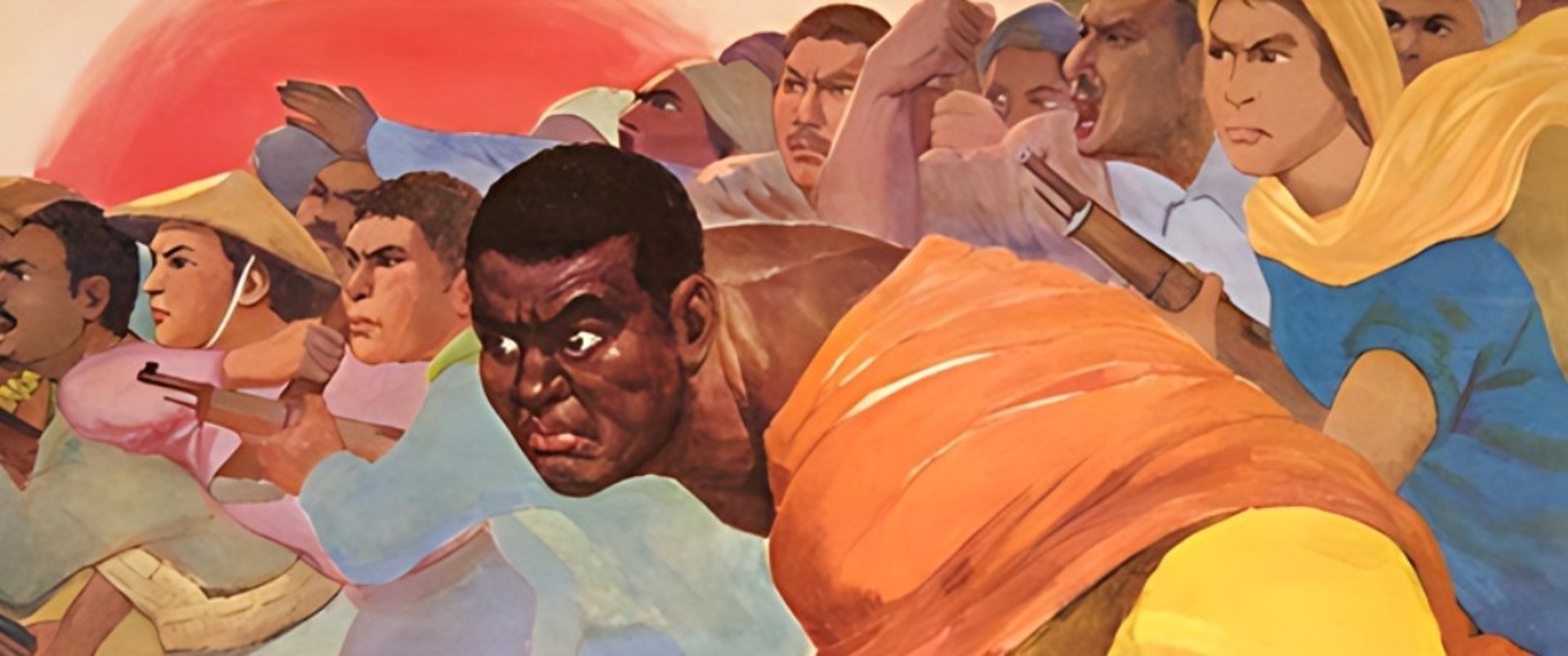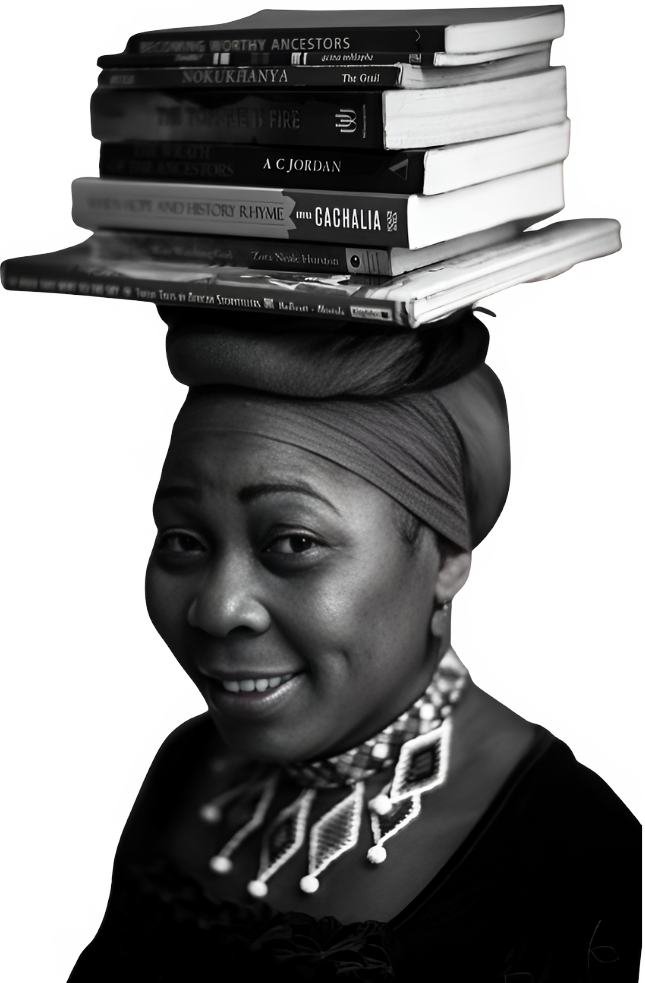Merken magazine

Postcolonial African Literature: Healing from Colonialism
Can Africa ever outrun the ghost of colonialism? This article explains how African writers seized the pen from the colonial powers, took back control of their stories, and challenged the lies that have haunted their continent for too long. As false narratives continue to shape perceptions, we need these writings now more than ever!
LITERATURE POLITICS AFRICA
Meryem Harafi
8/19/20246 min read
Storytelling has always been at the heart of human experience. Stories hold power and can sometimes be dangerous, with peoples’ destinies at stake. With a story can a leader convince his people of. genocide, and with a story can a powerless make millions revolt.
African literature contains a rich and colorful mix of history, identity, and resistance. However, throughout history, it has faced challenges and reshapes of Colonialism and Orientalism, and its pages were poisoned with the colonial discourse, which was, and still is, produced by the colonial powers to justify and maintain their superiority and dominance over the colonized. Postcolonialism in


literature emerged as a tool of resilience and a way for reclaiming the right to have the authority of the colonized to tell their own stories that were once written only by the colonizer. It allows the marginalized and silenced voices to be heard and re-represent their identity, culture, and history.
Storytelling has always been at the heart of human experience. Stories hold power and can sometimes be dangerous, with peoples’ destinies at stake. With a story can a leader convince his people of genocide, and with a story can a powerless make millions revolt.


African literature contains a rich and colorful mix of history, identity, and resistance. However, throughout history, it has faced challenges and reshapes of Colonialism and Orientalism, and its pages were poisoned with the colonial discourse, which was, and
still is, produced by the colonial powers to justify and maintain their superiority and dominance over the colonized. Postcolonialism in literature emerged as a tool of resilience and a way for reclaiming the right to have the authority of the colonized to tell their own stories that were once written only by the colonizer. It allows the marginalized and silenced voices to be heard and re-represent their identity, culture, and history.a
The Legacy of Colonial Narratives and the Birth of Postcolonial Literature
Colonialism was not just a political and economic project, it was, as much, a cultural one. Through many practices, the colonizers denied Africans their cultural rights. On one hand, they imposed their languages, religions, and cultural practices on the peoples they subjugated as a way to suppress the indigenous culture, which was represented as inferior to the colonizer. To this day, we see that many people, including the colonized, still consider some Western languages, cultural practices, and even Western history as superior to the non-Western. This may go as far as justifying the inhuman practices that the Western countries were involved in and consider it less ‘inhuman’ than the non-Western regardless of whether the facts show otherwise or not.
On the other hand, the colonial powers used the power of representation to spread ideas and beliefs about Africa and Africans that go with their colonial interests and agendas. Literature was used in this project as colonial literature presented African societies through a narrow and often derogatory lens. Colonial writers and novelists, like Joseph Conrad in his novella Heart of Darkness, portray Africa as a 'dark continent' where people are primitive, savage, and exotic, with a lack of law, order, and ethics. A good example of that is Marlow's unsettling realization in the quote “Well ... that was the worst of it—this suspicion of their not being inhuman.” Here, Marlow mirrors how Europeans see African natives as less than humans. In another quote, Kurtz in his report on the suppression of savage customs adds “Exterminate all the brutes!” This shows the dehumanization of the African people, portraying them as savage and uncivilized beings who deserve annihilation.
Considering the colonized as “The Exotic Other” and as “Not fully human” makes the inhuman practices easier to be accepted and justified by people, including convincing the colonized subjects of their own inferiority and worthiness of colonialism. The legacy of this can be noticed in the idea that many people still have about Africa as a dark place of uncultured and primitive people who still need Western help because they are incapable of self-governance.
As a response to these injustices, postcolonial Africans began to assert their voices, challenging the monolithic portrayals imposed by colonialism as an attempt to reclaim their narrative control and voice. Literary works started to challenge and derive from the colonial way. This literary renaissance sought to reconstruct African identities through accurate stories and images about Africa as a continent of rich diversity and complexity, with a long history of sophisticated cultures, societies, and civilizations. It portrays it as a place of resilience and creativity, with diverse languages, traditions, and experiences. They are active agents in their own history, voices, perspectives, and identities. They are complex individuals with rich cultural heritage, intellectual achievements, and capacity for self-determination. Shockingly, if it wasn’t for colonialism, in all its forms including the modern colonialism of African exploitations, Africa would in fact be a better place. That is why, efforts to challenge the Western and external parties that slow down the African development must continue in literature as well as all other domains.
Reclaiming Language and Cultural Identity through literary works
The following literary works contributed to the postcolonial movement. Chinua Achebe’s Things Fall Apart is a key work in challenging colonial views of Africa. Through stories about the Igbo society, Achebe provided an alternative to the negative colonial descriptions. His work highlighted the value of African cultures and showed their rich complex cultures, which is a side that was always ignored and dismissed in the colonial narratives. The writer broke free from the colonial stereotypes and gave an insider's view of African life, customs, and values. The characters in his work are complex and well-developed with their own strengths, flaws, and agency, showing Africans as multidimensional individuals, rather than a group who fall into one collective simplified description relying on a white protagonist to save the day.
Additionally, there is a complex relationship between language and identity. That is why, in an attempt to reconnect with their cultural roots that colonialism had attempted to sever, African writers like Chinua Achebe and Ngũgĩ wa Thiong'o started to use their native languages in literary works to embrace their linguistic heritage and challenge the inferiority allegations and stereotypes that the colonizers put on the Indigenous peoples’ language. This move was more than a linguistic choice, it was a statement of cultural sovereignty and narrative independence. These attempts affirm the right of African writers to tell their stories and present them to the world as an alternative to the stories that once allowed the world to put the colonized in Secondary-class humans.
Conclusion
It is true that through storytelling and a critical examination of history, postcolonial writers have succeeded in challenging the narratives of the past and creating a space for a free African expression of cultures and identities. However, many efforts are still needed to critique the impacts of colonialism, including political corruption, economic inequality, and cultural imperialism. These problems and inaccurate depictions are still widely spread and believed, and if you look closely enough, you'll see the remains of it in the details of our lives, especially with the colonial discourse still finding its way.
Glossary of Key Terms:
Colonialism is a system in which one country establishes and maintains control over another country or territory through political, economic, and cultural dominance. This domination includes suppressing the colonized culture and replacing its language, religion, and customs with those of the colonizer.
Orientalism is a term coined by Edward Said that explains how Western societies portray non-Western cultures, constructing distorted images of exotism, primitivism, and inferiority in order to perpetuate power dynamics and legitimize colonialism.
Postcolonialism is a broad term that refers to a variety of theories and practices that emerged in the aftermath of colonialism. The goal is to understand its long-term impact and challenge its legacies. In terms of literature, Postcolonial writers use it to deconstruct colonial narratives, reclaim their voices, and accurately represent their cultures.
Colonial discourse refers to the use of language, ideas, narratives, visuals, education, and other elements produced by the colonizer to construct knowledge and truth about colonized identities, as well as to create a system of belief that places the colonizer in a position of dominance and the colonized in one of inferiority.
